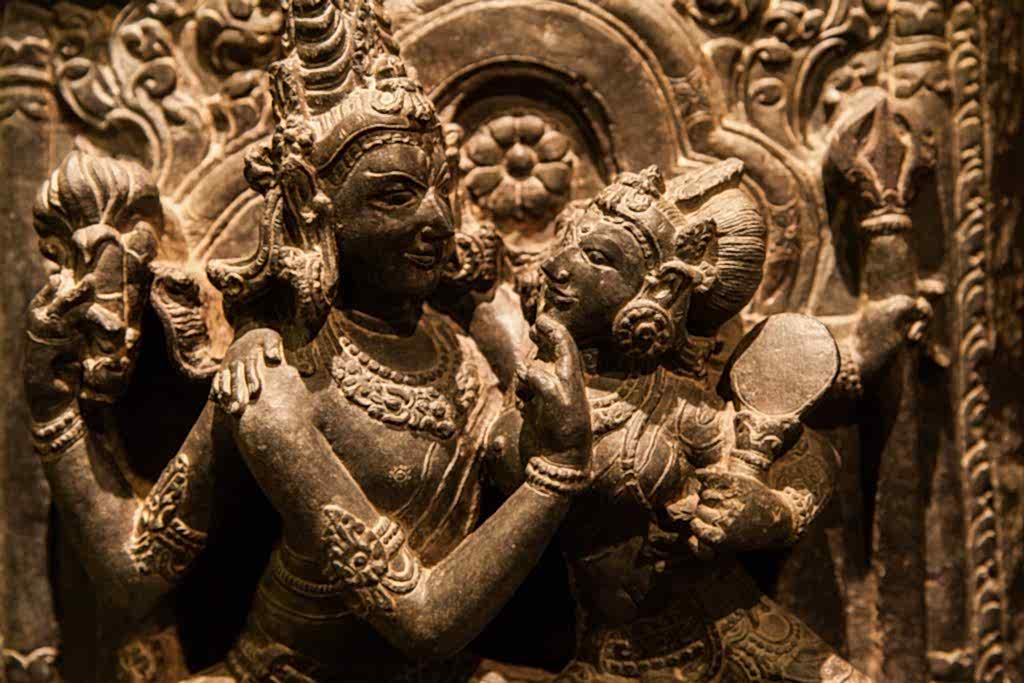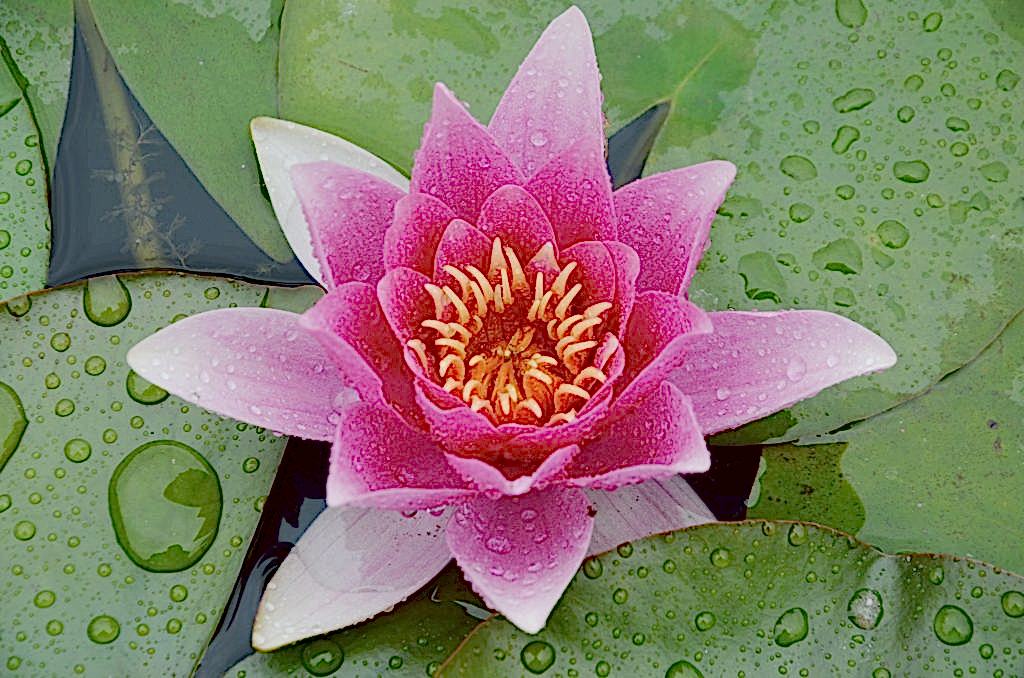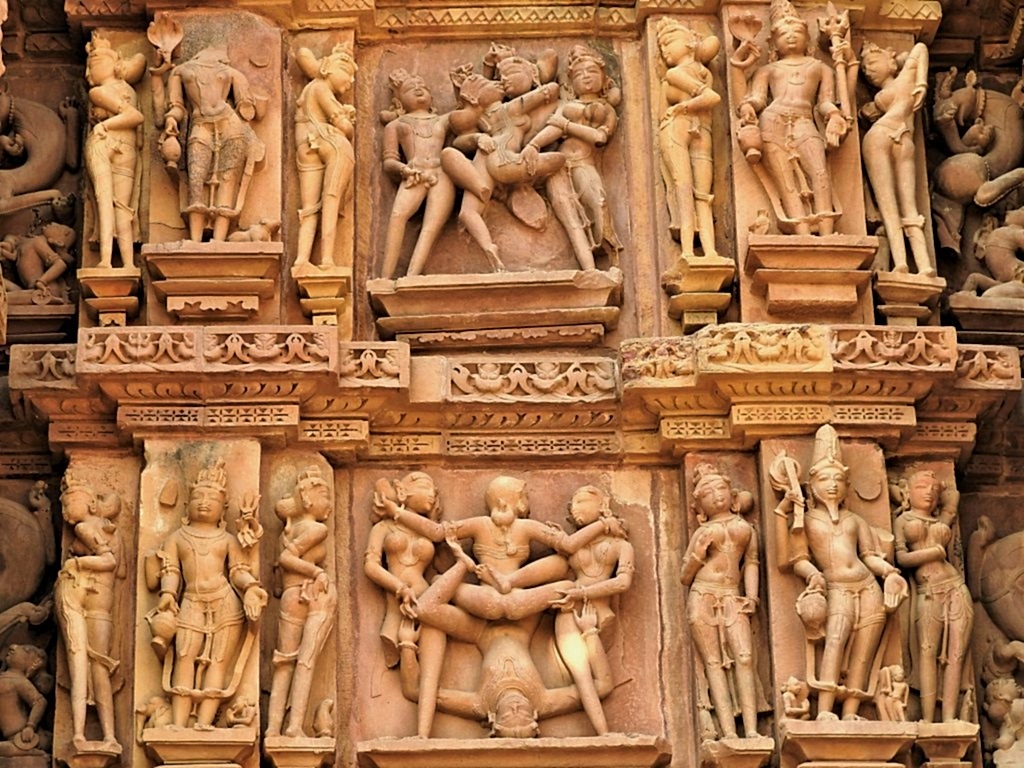This blog is about:
- Hormones
- Relationships
- Human emotions
- Spiritual evolution
- Intimacy & Sex
- Ejaculation & Orgasm
- Attraction
In this lively and insightful panel discussion, the intricate dance between biology and Tantra in shaping human emotions, relationships, and sexual experiences takes centre stage. Moderated by host Vivienne Rush, the panellists—Dr. Liat Yakir, Maria Porsfelt, and Foca Yariv—bring unique perspectives that interweave science and spiritual practice, shedding light on the biological mechanisms of love, the mysteries of human emotions, and the transformative potential of Tantra.
The Biological Foundations of Love
The conversation kicks off with Dr. Yakir, a biologist specializing in genetics and the author of A Brief History of Love, explaining her motivation for writing the book. She describes a personal and scientific journey, motivated by her own life experiences and the desire to understand the underlying biological mechanisms of human emotions, especially love. Dr. Yakir candidly admits that her own relationships, including two divorces, spurred her curiosity about what drives human attraction, attachment, and eventual emotional challenges.
According to Dr. Yakir, love is more than just a feeling—it’s deeply embedded in our biology. “We need love, we need these hormones that are secreted when we are having full attachment and fulfilling relationships with others,” she explains. Her research delves into how the brain’s chemistry—particularly the role of hormones such as dopamine, serotonin, and adrenaline—fuels the initial euphoric stages of love. However, over time, this initial magic fades, revealing a predictable pattern that can lead to disillusionment and discomfort in long-term relationships. Dr. Yakir emphasizes that understanding these biological processes can help people manage the challenges that naturally arise in relationships, rather than allowing them to be controlled by unconscious drives.
The Role of Hormones and Challenges of Monogamy
In discussing her own experiences and broader biological trends, Dr. Yakir notes that monogamy is not a natural state for most species on Earth, including humans. She reflects on how many couples, especially after having children, face significant relationship challenges, often falling into routine patterns where sex and emotional intimacy deteriorate. “It’s encrypted in our biology to feel less attraction to the same person over time and to be attracted to another person,” she explains, offering the audience a glimpse into what is known as the “Coolidge effect”—the biological drive to seek new partners.
Dr. Yakir suggests that the key to more fulfilling, long-term relationships is awareness. Understanding how biology influences behaviour can prevent individuals from falling into unconscious patterns that lead to heartbreak, guilt, and emotional pain. Her goal, as both a biologist and educator, is to help others recognize these patterns and actively work to preserve the connection in their relationships.

Tantra as a Solution: The Intersection with Biology
As the discussion shifts toward Tantra, the host invites Foca Yariv, a Tantra teacher, to share his perspective on how this ancient practice might offer solutions to the challenges outlined by Dr. Yakir. Foca explains that his interest in Dr. Yakir’s book was piqued when he read her mention of Tantra as a possible solution for sustaining relationships over time. He contacted Dr. Yakir, and the two began a conversation about how Tantra transcends some of the biological limitations that can strain relationships, particularly regarding male ejaculation.
One of the key points of their discussion was the biological drive for men to ejaculate every three or four days, a mechanism that Dr. Yakir mentioned in her book. Foca, however, presents Tantra as a practice that allows men to control and delay ejaculation, a skill that he believes can transform relationships by sustaining energy and desire between partners. “I completely agree that might be the biology,” he says, “but Tantra has solutions that transcend biology.”
Dr. Yakir acknowledges the significance of this point, admitting that scientific research often conflates ejaculation and orgasm in men, making it difficult to isolate the effects of each on the male reproductive system. This lack of research highlights a gap in understanding that Tantra might help fill, offering men and women alternative ways to experience intimacy that move beyond the limitations of biology.
Orgasms and Well-being
When the conversation turns to the role of orgasms in overall well-being, Dr. Yakir stresses the profound effects that orgasms have on both men and women. For men, she notes that 21 orgasms per month is a general recommendation, as it benefits the prostate and reproductive system. When asked about women, she enthusiastically responds, “As many as possible!” pointing out that sexual activity and orgasms have been shown to ease the transition into menopause for women and improve long-term health outcomes.
However, the conversation also highlights the gender disparities in orgasm research, with Dr. Yakir noting that female sexuality remains understudied. Despite this, she emphasizes the importance of orgasms for women, not just for reproductive purposes but for overall mental and emotional well-being. “We get a lot of good chemicals in this pharmacy in our head during orgasm,” she says, referencing the release of endorphins and other feel-good chemicals that contribute to a sense of connection and fulfilment.

Harmonizing the Female Cycle through Tantra
Maria Porsfelt, a Tantra teacher, offers a reflection on her own experience of reading Dr. Yakir’s book, and how it has influenced her understanding of women’s hormones. She highlights the monthly cycle’s significant effect on women’s emotions and physical state, noting that women often feel like “four different women” in the span of a month due to hormonal fluctuations. Maria explains how Tantra for women focuses on harmonizing this cycle, with particular attention on practices that alleviate discomfort and pain.
Maria shares that from a tantric perspective, sexual energy can be modulated during lovemaking, potentially leading to a smoother menstrual cycle. She suggests that regular orgasms can energetically harmonize women’s bodies, reducing discomfort. This notion links physical experiences with spiritual practices, presenting a holistic view of how energy and hormones interact in women’s bodies.
Rekindling Connection in Long-Term Relationships
Continuing the conversation, Maria touches on a key theme from Dr. Yakir’s book: how couples, initially bonded by strong hormonal responses, can grow apart over time if they do not actively maintain their connection. She observes that couples often end up like “strangers” after several years, despite starting off deeply in love. This disconnection can be avoided if couples cultivate the behaviours and attitudes that originally bonded them.
According to Maria, Tantra teaches practices that help rekindle the initial attraction and love. By recreating the behaviours from the beginning of a relationship, such as attentiveness and affection, couples can reignite their bond, thereby re-triggering the hormonal responses that made them fall in love. Foca agrees, adding that men can also benefit from returning to early relationship behaviours like giving flowers and being more romantic. He explains that these actions can stimulate feelings of manliness and affection, reviving passion in the relationship.

The Biological Roots of Love and Connection
Dr. Yakir expands on the biological mechanisms behind love, describing how emotions are driven by the release of hormones and neurotransmitters. Emotions, she notes, are “energy in motion,” designed to trigger behaviours. She explains that the key chemicals involved in love—dopamine, serotonin, and oxytocin—each serve different roles. Dopamine drives desire for new experiences, serotonin fosters contentment with what we already have, and oxytocin builds bonds through physical touch and emotional sharing.
Importantly, She clarifies that love is often confused with infatuation, the early stage of attraction fuelled by high dopamine levels. This is why the early phase of a relationship feels so exhilarating. However, as relationships progress, dopamine levels decrease, and the challenge becomes sustaining connection through oxytocin-driven bonding behaviours. She emphasizes that this bonding process requires time, touch, and emotional support, and cautions against rushing into sexual intimacy before these bonds are established.
Attraction and Hormonal Imprinting
The conversation takes an interesting turn when the host remarks on her tendency to be attracted to men who resemble her father, prompting Dr. Yakir to explain the concept of “imprinting.” According to her, early caregivers strongly influence our future romantic choices. This is because the brain seeks familiarity, which feels safe and predictable. Consequently, many people subconsciously choose partners who resemble their parents or even siblings in appearance or personality traits. This is not necessarily an indication of compatibility but rather a result of the brain’s preference for certainty and predictability over the unknown.
Dr. Yakir uses examples from the animal kingdom, as well as human psychology, to illustrate how imprinting shapes attraction. She explains that this biological drive toward familiarity often results in recurring patterns in relationships, where people find themselves repeatedly drawn to similar types of partners.
Respecting the Orgasm and Deepening Love
In response to the host’s inquiry about respecting the orgasm, Foca and Maria share their thoughts on the spiritual and emotional significance of this experience. Foca elaborates on how yoga and tantric practices can help control hormonal levels and increase self-awareness. Specific postures, like the Cobra pose, can stimulate emotions such as love and affection by activating the endocrine system. For Foca, these practices tap into universal energy, suggesting that love is not merely an emotion but a foundational force in creation.
Maria offers a different perspective, asserting that while men’s orgasms tend to be more about dopamine-driven pleasure, women’s orgasms are far more complex. For women, the experience often requires a deeper emotional and spiritual connection. She believes that women need more than just physical attraction; they need to feel a range of subtle interactions to experience a fulfilling orgasm. This complexity may explain why women often connect with others on deeper emotional levels, even with people they are not sexually attracted to. Maria’s perspective provides a counterpoint to Dr. Yakir’s more biologically-driven view, suggesting that there is a soul element involved in attraction and love.




